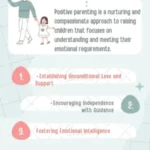Parenting, an intricate journey filled with challenges, is a constant learning process. Despite the best intentions, parents may unknowingly engage in behaviors that irk their children. Recognizing and rectifying these actions is crucial for fostering a more harmonious and understanding parent-child relationship.
1. Fostering Positivity:
Criticize Often, Praise Rarely:
It’s natural for parents to guide their children, but constant criticism without acknowledgment of achievements can lead to feelings of inadequacy. Balancing constructive criticism with genuine praise is vital for nurturing a child’s self-esteem.
Overemphasizing Grades:
While academic performance matters, prioritizing grades over the parent-child relationship can be detrimental. Encouraging holistic growth and acknowledging various accomplishments beyond academics creates a healthier perspective.
Constantly Comparing:
Regular comparisons to peers can undermine a child’s confidence. Focusing on individual strengths and encouraging self-improvement fosters a positive self-image.
2. Embracing Open Dialogue:
They Think They Are Always Right:
Promoting open communication is key. Encouraging discussions and explaining decisions instead of relying on “Because I Said So” establishes mutual respect and understanding.
They Never Apologize:
Acknowledging mistakes is a strength, not a weakness. Modeling humility and apologizing when wrong teaches valuable life lessons about accountability.
3. Consistency and Fairness:
Double Standards And Hypocrisy:
Consistency is crucial in parenting. Avoiding double standards and treating children with fairness cultivates trust and mutual respect.
4. Empowering Independence:
Controlling Behavior:
Allowing children space to make choices is essential. Balancing guidance with autonomy enables them to develop decision-making skills without feeling stifled.
5. Respecting Children’s Individuality:
Treating Children As Second-Class Citizens:
Every child deserves respect. Recognizing their rights, including them in decisions, and validating their emotions fosters a sense of self-worth.
Conclusion: Building Lasting Bonds
Parenting is a journey of growth, both for children and parents. By acknowledging and rectifying these common annoyances, we pave the way for a more understanding and compassionate relationship. It’s about striking a balance between guidance and autonomy, ensuring open communication, and fostering an environment where every child feels valued.





